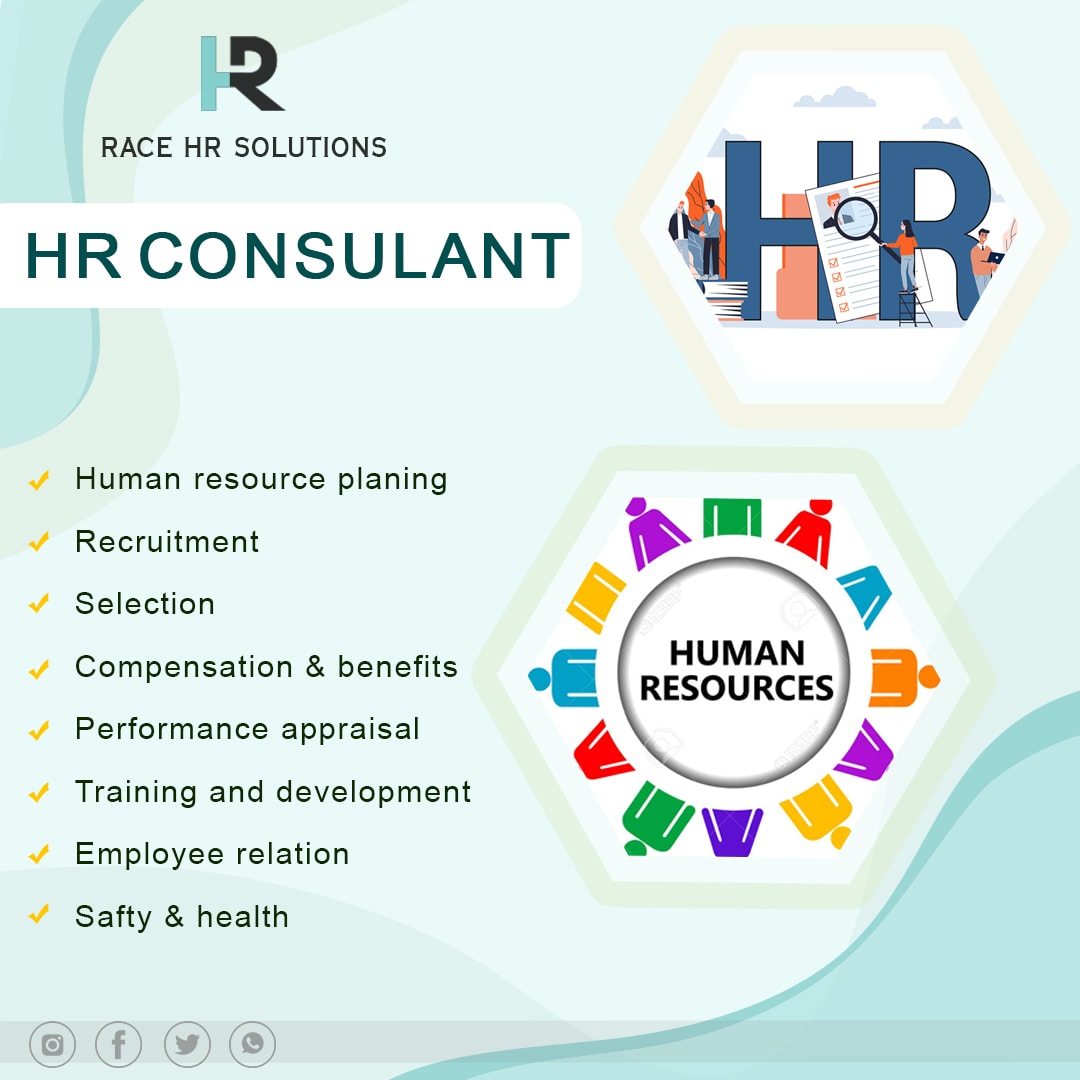Global Compliance In Outsourcing: Navigating Regulations
Have you ever felt you are tiptoeing through a regulative minefield on outsourcing? You’re not alone. Many can agree that the globalized nature of outsourcing brings a myriad of compliance challenges. In this post, we will supply a clear roadmap to get rid of the international compliance challenges in outsourcing.
We will talk about the significant worldwide regulatory structures available to assist businesses assess and handle potential threats related to outsourcing. We also include country-specific guidelines and real-world examples to assist companies develop and implement more proactive measures.
By the end of this read, you won’t simply have compliance understanding – you’ll possess a strategic toolkit. Ensuring your outsourcing undertakings fulfill regulative standards and provide your business an one-upmanship. Let’s start.
Understanding worldwide compliance, best practices, & implications
Global compliance refers to the worldwide standards, guidelines, and guidelines businesses and outsourcing partners require to follow. It ensures they can operate lawfully and morally in the countries they wish to run, contract out operations, or offer services. It also preserves the safety of staff, clients, customers, and stakeholders.
Global compliance covers a large range of locations, and we’re here to assist you through every layer.
I. Labor & employment guidelines

One advantage of having an outsourcing partner is gaining access to the international talent swimming pool. If you have specialized skills and knowledge that are not readily available in-house, they can provide them. Once they do, comply with all the regional and worldwide labor laws and regulative compliance practices. This makes sure business respect staff members’ rights and treat them relatively and ethically.
Coca-Cola is one company that sets a good example. Their work environment rights implementation guide covers labor laws and standards they abide by to support the workers’ wellness.
The company also abides by safety and health laws, policies, and internal requirements. This assists them, as an employer, to offer a secure, healthy, and efficient work environment.

Before entering a partnership, verify if your chosen contracting out business observes labor laws and ethical sourcing practices. Are they offering sensible working hours, sick leaves, and fair wages? Reviewing the contracting out company’s labor policies and worker handbooks is one way to verify. You can likewise request their compliance accreditations, such as:
Fair Trade certification
Carbon Trust Standard
Fair Labor Association (FLA) Accreditation
SA8000 (Social Accountability International Standard).
ISO 45001 (Occupational Health and Safety Management System).
Best practices: Create joint policies
Outsourcing partners represent your brand globally. So, your service must line up with them in every aspect. You can create joint policies to ensure they share your commitment to upholding high requirements.
![]()
Joint policies will plainly lay out the legal and ethical standards anticipated from both celebrations. It might include security steps, information privacy, and other industry-specific standards. You can also develop company assessments to set clear expectations. The assessments cover the deliverables, quality of work, efficiency standards, and even candidate-job matching.
Use centralized file repositories to house all the joint policies. You can keep it in cloud-based document management systems (DMS), compliance management systems, or develop an understanding management system on your shared collaboration platform. It makes it more available and simpler to share. Here are 2 outstanding choices:
OnlyOffice
Is an outstanding option for DMS since you can collaborate with your contracting out partners on various files. It offers 5 editors (file editor, spreadsheet editor as an option to Microsoft Excel, presentation editor to make discussions, fillable kinds, and PDF editor), and they are all safe and secure. This software adheres to worldwide security requirements and consists of 3 levels of encryption.
Tettra
Is your go-to option for understanding base and management software application. You can develop an understanding base through its simple editor or Google Docs file. It likewise uses AI to quickly answer your staff members’ concerns through the app or Slack.
If these alternatives don’t make the cut, you can constantly discover OnlyOffice and Tettra options. You can discover an understanding base platform that matches your group’s purpose and size. When checking out alternatives, ensure to also think about the following:
Search performance.
Collaboration functions.
Customization options.
Interface’s user-friendliness.
Access Controls and Security.
II. Data security & privacy laws
Each nation has its own Data Protection Authorities (DPAs). Their main duty is supervising how organizations collect, process, store, usage, and transfer personal data. They can enforce charges on companies that fail to meet their required requirements.
Most global DPAs demand that businesses consist of a personal privacy policy on their sites or apps. The exact content of the personal privacy policy will depend upon the nature of the company and legal jurisdictions (home country and target audience region). You can start with a basic privacy policy if you satisfy any of the list below requirements:
Data collection has minimal influence on users.
Collects basic details (ex., name and email).
No interactive functions are offered on the site.
Doesn’t use third-party services that gather extra user data.
The website does not require account production or registration for users.
Sokisahtel OÜ’s Sockdrawer, a modern-day style hosiery and socks seller, works as a fantastic example. It just offers a basic personal privacy policy because it only asks for basic information on its account registration. They likewise utilize those details for interaction, risk avoidance, and invoice creation. Lastly, they do not utilize third-party services due to the fact that they just gather info through their site.
Sokisahtel OÜ supplies a general personal privacy policy, however they make sure to include consumers’ most common issues, such as:
How long will we keep your data?
When will we ask you for permission?
Who else has access to your information?
In what other ways can we use your data?
However, information privacy legislations (i.e., GDPR and CPRA) lawfully obligate business owners to include a more in-depth personal privacy policy if they run a site, desktop app, and mobile app. eCommerce is one market required to add this type of personal privacy policy in all of their platforms. Shop Solar, a complete solar and storage solutions company, is a terrific example.
Aside from the standard info, they also describe how they will utilize personal information in their marketing projects and communications. With this practice, Shop Solar ought to adhere to the California Online Privacy Protection Act (CalOPPA) to offer users with an opt-out alternative. They offer this with a notification of the right to opt-out and a link where they can make the opt-out request.
Shop Solar also adheres to the General Data Protection Regulation (GDPR) because it uses products and services within the European Union. They focused their notice on information sharing outside the European Union, Canada, and the U.S.
Best practice: Always add kids’s online personal privacy security notice
Everyone has access to the internet nowadays, consisting of minors. That’s why information privacy legislations like GDPR and COPPA obligate company owners to inform parents and guardians about their practices. They can inform them with a direct notification put prominently on the homepage, landing page, or locations where they gather personal details.
Regarding the notification, there is no particular format. MedicalAlertBuyersGuide.org, for instance, offers a simple explanation that their services entirely attend to persons age 18 and older. Specifically to the elderly because their service revolves mainly around looking into and comparing personal emergency situation reaction systems. They in some cases share suggestions (travel and way of life). But still, these are intended for anybody moving into older age and AARP members.
They encourage moms and dads and guardians to contact them if their children unconsciously offer them with their individual details. They will it from their servers as quickly as they get it.
III. International financial & tax compliance
Making smart financial decisions is important to supply chain operations. Start discovering your home nation’s financial and tax systems and contracting out location to determine chances and alleviate compliance threats. Here are the aspects you ought to know about:
Processes.
Filing due dates.
Withholding tax factors to consider (coordinate with tax authorities).
Tax compliance requirements (i.e., business income tax, value-added tax).
Forms and files (i.e., monetary declarations, transfer rates documentation).
We recommend coordinating with your contracting out partners. You can go over policies and treatments that you both must follow and establish an effective planning procedure. Financial and tax compliance is not only a legal responsibility. It’s an outstanding technique to manage threats and benefit from offered rewards, credits, and reductions.
The latter will have a rewarding influence on your bottom line, generating significant revenue. However, you ought to understand the credits and incentive schedule in different jurisdictions. You need to likewise stay updated with the current modifications in tax laws.
Non-compliance and you will deal with the very same fate as Apple Inc. (Apple State Aid Case). After someone implicated the company of getting illegal tax breaks in Ireland, it came under scrutiny. Though the European Central Court overturned the 2016 decision in 2020, Apple Inc. still suffered a massive setback in its fight. If they lose the tax case, they should pay more than 13 billion euros worth of back taxes.
Best practice: Do correct documents
Tax filings include lots of financial records, transactional information, and various kinds. Businesses should preserve accurate and total paperwork. This ensures you will not miss out on anything important. Documentation is also convenient for:
Audit routes
Dispute resolution
Act as proof in legal procedures
Continuous enhancement (efficiency metrics and feedback loops).
It can also help you see if the outsourcing plan lines up with your home country’s applicable standards and regulations. This offers the necessary insights to handle worldwide compliance. With this level of transparency, each party can instantly see if one celebration is dedicating scams.
IV. Service & item requirements
Product and services standards consist of guidelines and criteria to ensure dependability in numerous elements of shipment, efficiency, and quality. When product and services regularly fulfill (or perhaps go beyond) these established requirements, it enhances favorable experiences for consumers.
It also assists company owners produce a baseline. Business owners will utilize this efficiency standard to instantly recognize locations that work and need enhancements.
The International Organization for Standardization (ISO) is the most typical entity that implements service and product requirements. It ensures consumers that the product and services are safe to utilize, trustworthy, and high quality. Its requirements are organized based on the function or industry they serve.
ISO 13485: Medical devices industry.
ISO 37001: Prevent, identify, and address bribery.
ISO 50001: Development of an energy management system (EnMS).
Foreign Corrupt Practices Act: Compliance with anti-corruption laws.
ISO/IEC 17025: Testing, sampling, or calibration of all kinds of laboratories.
Some items or services can cause injury or death. The Consumer Product Safety Commission (CPSC) protects the public from these threats. Aside from their own regulations, they likewise cover different statutes to enhance their consumers’ protection.
a. Consumer product safety ACT (CPSA)

Authorize the agency (CPSC) to prohibit items that might or will cause damage and pursue recalls.
b. Refrigerator security act (RSA)
Requires manufacturers to set up a door system on fridges, allowing the door to open from the inside.
c. Labeling of harmful art materials act (LHAMA)
Mandates that all art products that have the potential to cause persistent health dangers need to bear a caution label.
Best practices: Evaluate suppliers & suppliers utilizing item & service standards
Company owner make product or services standards a vital criterion in selecting providers and suppliers. This tactical technique assists them choose partners who maintain similar high standards of quality and security in their product or services.
Clear interaction assists in smoother interactions between company owner, providers, and suppliers. It makes it simpler for business owners to give their expectations and particular quality requirements to providers and vendors. They can likewise utilize it to offer efficiency feedback.
Some suppliers and suppliers utilize communication channels to share the particular worldwide compliance laws and legislation they apply to their operations. But some, like Vivion, likewise use its site’s product pages to share their compliance details.
Vivion is a trustworthy wholesale provider of quality components. They integrate all their compliance documents into one file to reveal their dedication to ethical service practices. One example is its Calcium Carbonate product page.
Below the product’s requirements, you will discover the ready document all set for download. Click the “Get Documentation” button and fill in your name and email. They will send it to you right after. Some suppliers use their order types and consist of compliance info as great print.
You can also include it in the order form. Create customized order types and write your compliance information in great print. Add the firm’s logo design to make it simpler and easy to read.
Outsourcing & compliance trends to enjoy in 2024
Stay existing with industry trends to ensure your outsourcing activities fulfill the newest compliance requirements. We assembled the highlights in contracting out statistics. This will assist you redesign your international outsourcing initiatives.
1. It contracting out market
Infotech (IT) stays the leading market to outsource in 2024. The reason depends on the continuous evolution of expert system (AI), robotic process automation (RPA), and cloud innovation. Today, the majority of corporate online platforms and business intelligence (BI) tools utilize numerous technologies to offer excellent outcomes.
Consider a metrics intelligence platform, for instance. Today, information has become the most important organization property for making notified choices. So, companies discover tremendous value in embracing this reliable tool. A metrics intelligence platform uses different innovations to record, examine, and translate the output into digestible details.
A. Encryption, gain access to control, etc.
Security innovations to safeguard the information.
B. Big information frameworks
Handle the processing and analysis of big datasets.
C. Data storage facilities or cloud-based storage solutions
Store big volumes of structured and unstructured information.
D. Extract, Transform, Load (ETL) tools
Integrating information from different sources and transforming them into a standard format.
Regulations for AI utilize
Since AI’s use increased over the last few years, legislation is still under advancement. Only in 2023 did the EU Council and Parliament reach a provisional contract (The AI Act proposition) to control the usage of AI. Though the European Parliament will vote on it in early 2024, it will still work in 2025.
One nation’s legislation is different from others. Check your home country and outsourcing location to find out the AI-focused regulations they enforce. Here are the essential aspects that you should search for in the compliance commitments:
Security.
Fairness.
Accuracy.
Accountability.
Transparency.
2. Dropshipping market
The dropshipping market is growing and is anticipated to reach its worth of approximately $301.11 billion in 2024. That’s why it has actually ended up being one of the most popular service models over the last few years. But before embracing this organization design, think about key aspects to ensure success.
Conducting thorough market research study is the primary step. Here, you can identify the successful niches with sufficient demand and manageable competition. Once you select one, you can start looking for suppliers.
Ensure you look for dropshipping suppliers with a performance history of constant item quality, timely shipping, and worldwide service. They need to likewise show proof of compliance with numerous trading laws. Lastly, choose dropshipping providers compatible with different Ecommerce platforms software application for easy integration.
Remember to monitor the marketplace patterns. It helps you update your item provides to meet the most recent customer choices. Purchase an user-friendly eCommerce platform. Ensure your site is simple to browse, with clear product descriptions and high-quality images.
Regulations for dropshipping
Like the majority of service models, dropshipping businesses need to get a company license. This makes it easier to file taxes and prove the company’s authenticity. They should likewise abide by the appropriate law of the country they’re providing products to. Let’s say you’re dropshipping in New Zealand; you need to abide by its trading law, which consists of:
Privacy.
Fair trading.
Consumer assurances.
If you’re in the U.S., you should follow copyright, e-mail marketing software (CAN-SPAM Act), and licensing laws. There’s more regulatory compliance to adhere to depending upon the state where you run.
3. Combating anti-money laundering & counter-terrorism funding
Like a lot of companies, contracting out business can be unprotected versus anti-money laundering and counter-terrorism funding dangers. Make sure to embrace proactive steps and think about the following aspects:
i. Security threat
Outsourcing partners need to focus on information security and confidentiality.
ii. Third-party danger
If outsourcing partners rely on third-party company, confirm anti-money laundering and counter-terrorism funding controls in location.
iii. Continuous worker training
All staff members included in anti-money laundering and counter-terrorism funding processes should get the required compliance training courses and accreditations.
iv. Incident reaction strategy
Create a well-defined strategy that fully explains the impact of prospective occurrences, reports to regulatory authorities, and shows a commitment to correcting concerns.
v. Contractual contracts
All composed arrangements must plainly outline the duties of the outsourcing business and the provider. This includes the scope of services, reporting requirements, and adherence to regulative requirements.
Conclusion
As your companies expand across borders, understand and comply with varied regulatory frameworks in other nations. It will help you avoid issues and keep the operation running smoothly. Naturally, you need to also perform due diligence in your home country.
When complying with your home nation’s laws and ethical requirements, inspect if there are local laws that extend to extraterritorially. Extraterritorial laws promote specific ethical standards. They do so even when you’re operating in places with various cultural or legal standards. But it can likewise position jurisdictional difficulties. Verify if it has prospective disputes with worldwide laws or not to be safe.
Are you trying to find a reputable outsourcing platform that can assist you enhance your outsourcing method? Let Outsource Accelerator assist you. We can help you streamline operations, ensure compliance, and take full advantage of operational performance.

